
南开校友、各界朋友信息交流平台 |
|
马振铃老师
马振铃先生,女,1933年出生于北京。 1956年考入南开大学外文系英语专业,1961年毕业后留校,先后任外文系教授和旅游系教授。长期工作在教学第一线。马老师工作细致认真,教学效果好,深受同学欢迎。1996年退休。曾参与编写基础英语教材《英语》(两册);主编了用英语撰写的Aspects of Chinese Culture (《中国文化概要》),参加了《美国文学选读》(上下册)的部分章节;与宁洪老师合作编写并录制了《英语口语广播讲座》,该讲座中天津人民广播电台播出过两遍,受到全市英文爱好者的好评。
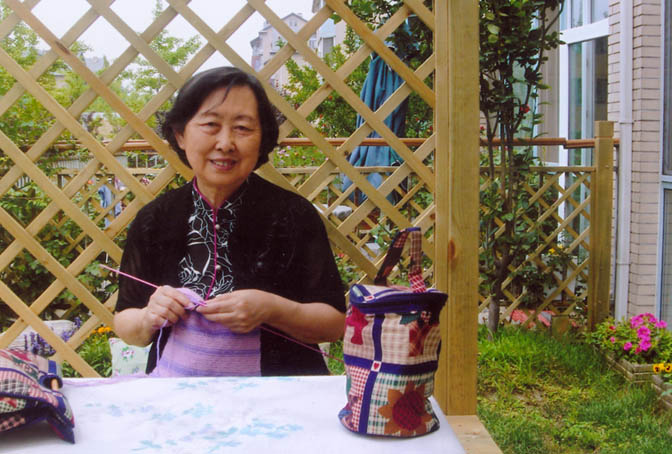
2008年6月马振铃做过心脏搭桥手术后在北京大女儿家休养

“这是2013年春节期间在小薇家中拍的。我女婿将其放到他的微信上,很多人都看到了。他在说明里写道:向薇的母亲祖居海淀,做得一手原汁原味的"海淀"炸酱面。引得好几个人都想到他家讨碗面吃。哏吧!” -- 马振铃
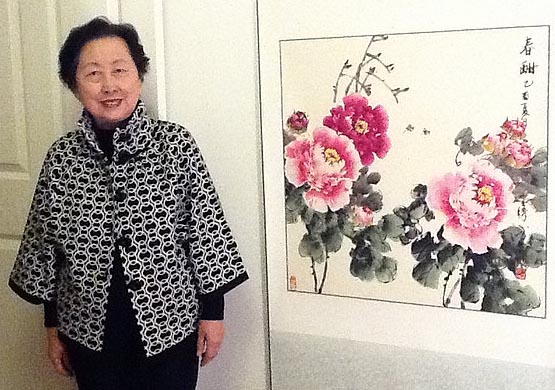
马老师近照,11/30/2011
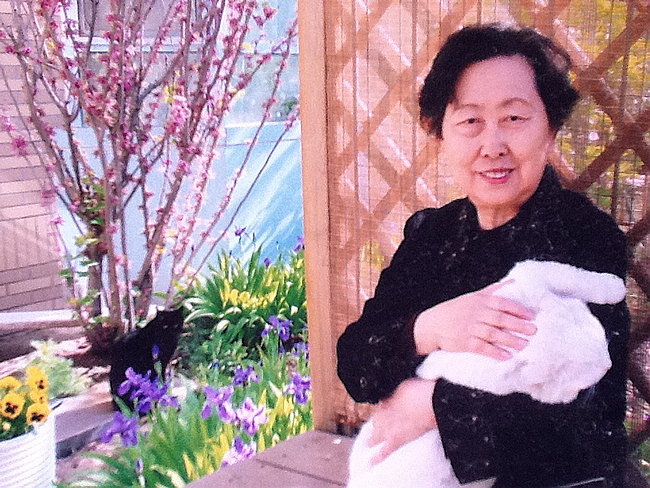
马老师与女儿家中的猫
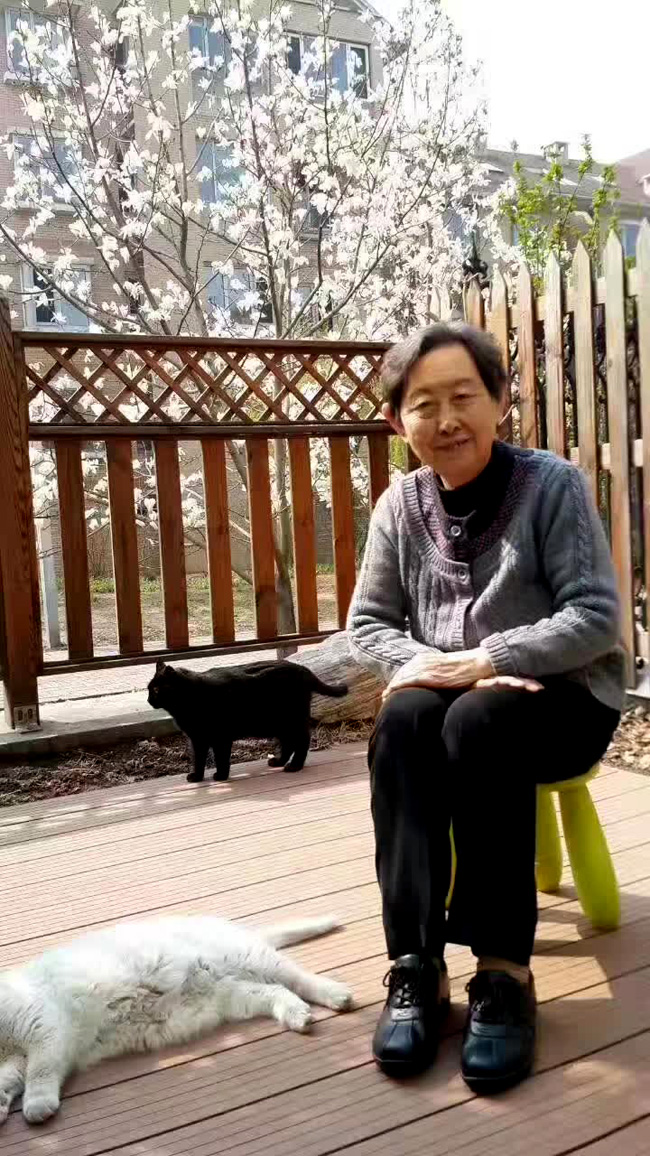
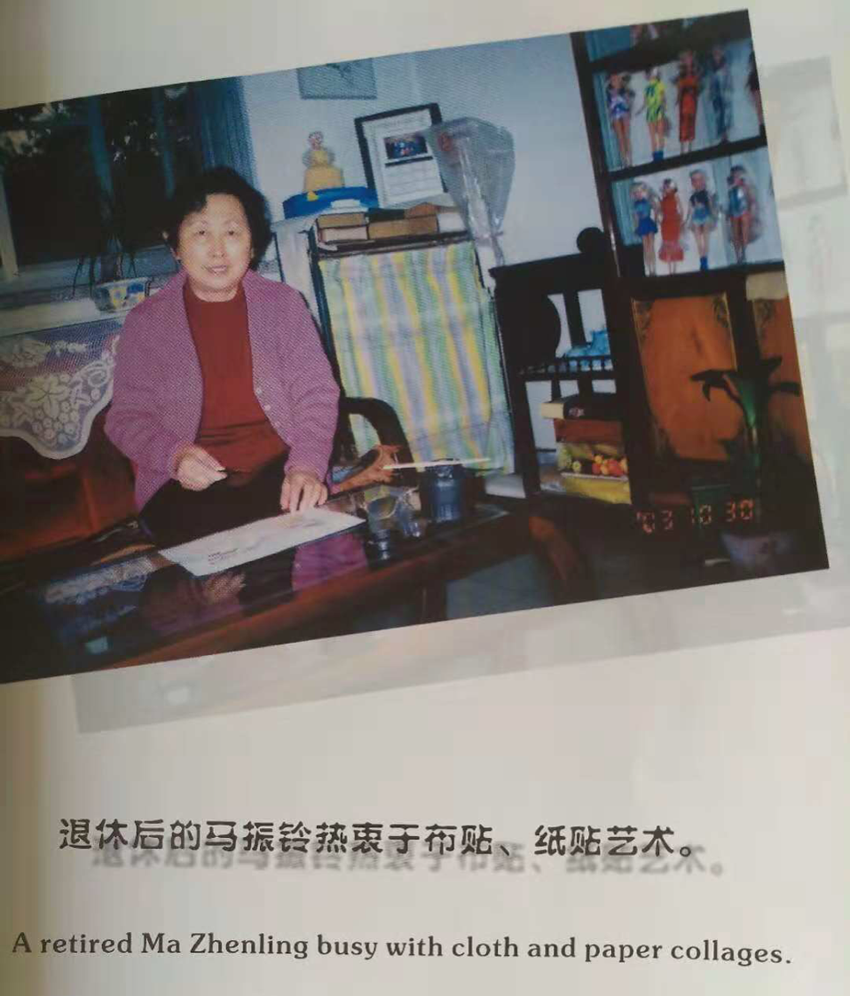
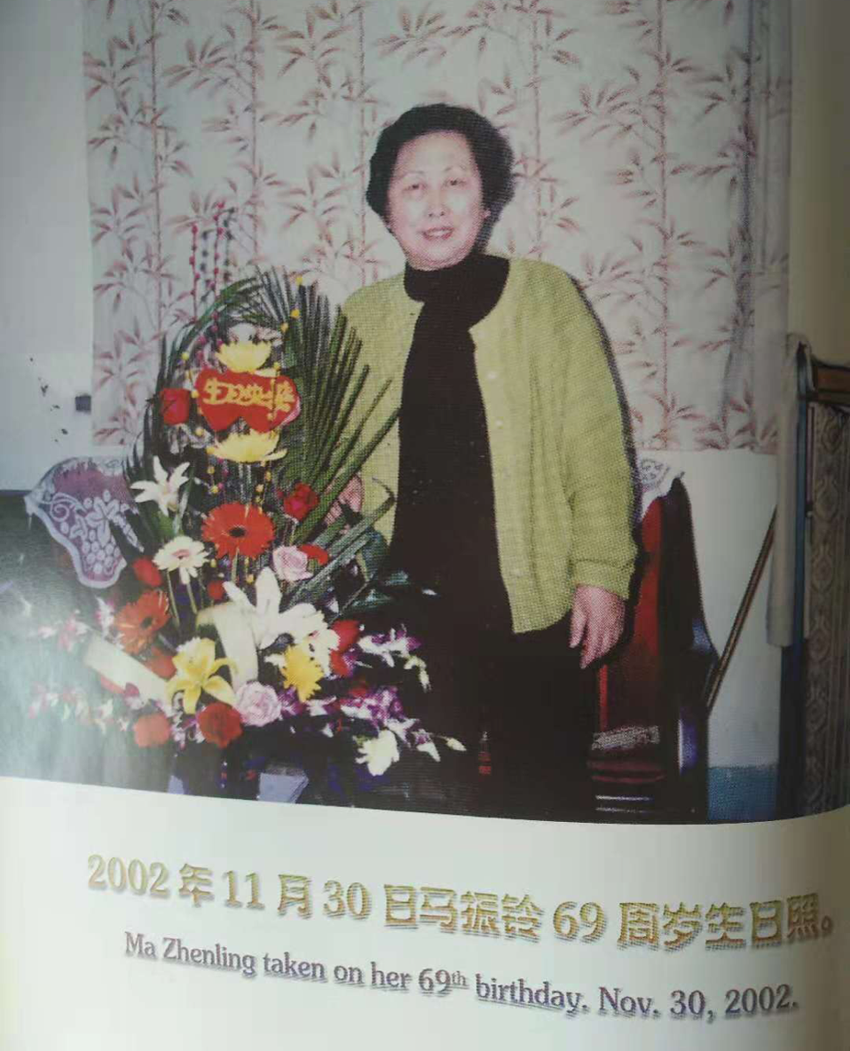

纪念抗战胜利75周年,南开领导看望马老师的爱人田连庆。 September 5, 2020
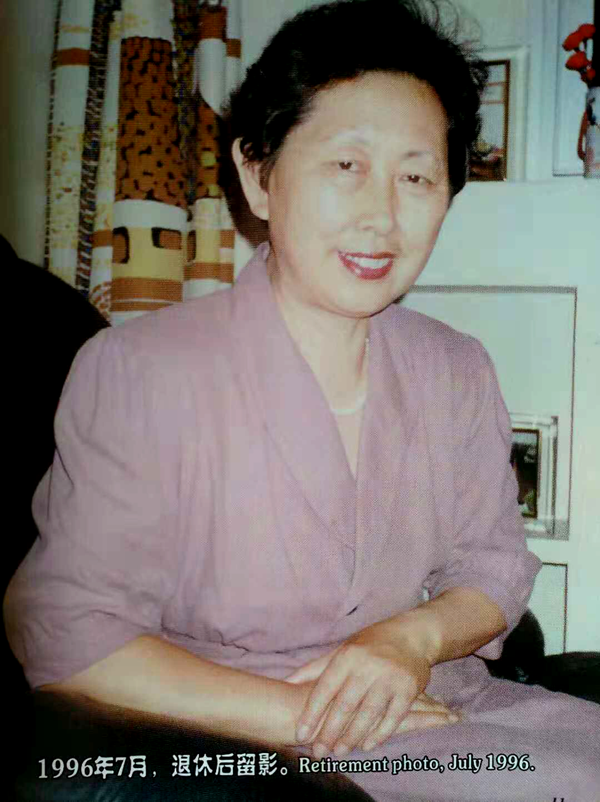
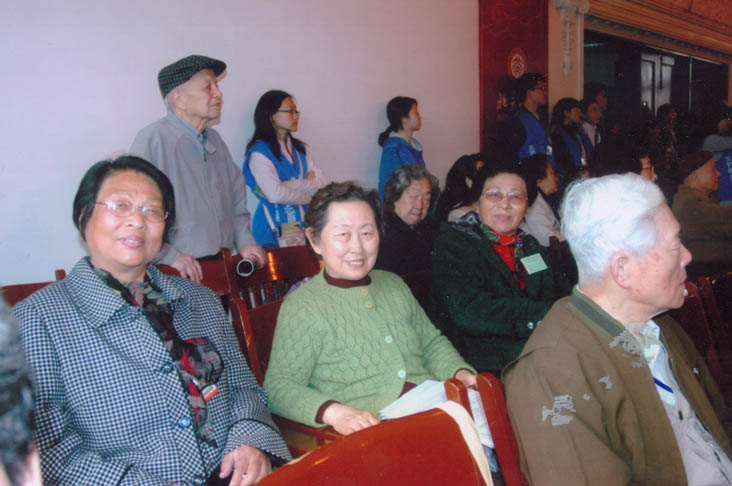
马振铃2009年4月18日在北大贝公楼礼堂出席燕京大学建校90周年庆祝大会(马先生曾就读于燕大附中初中部)

前排左起第三人为马振铃

90年代贺新到天津与老同学及马振铃老师团聚

"三人坐"
“题为"三人坐"是幽默,凤凰台有个节目叫"三人行"。左起:哥哥马光兆,89 岁,很有成就的书法篆刻家,这位老顽童把刚得到的紅包藏在了腿下;表姐李澄,95岁,精神矍铄,思维敏捷,刚出版了一本自传;马振铃,82岁,读书看报、做些手工艺品,在美丽的南开园安享平静生活。”--马振铃

目录
序
家世
自传
随笔
跋
|
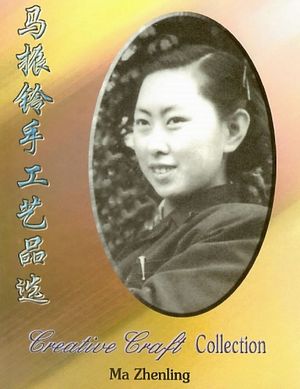
目录
前言
马振玲简介
贴纸篇
纸贴装饰画
包装盒纸贴画
纸贴贺卡
布贴篇
布贴装饰画
布贴贺卡
编制篇
缝制篇
后记
|
 马振铃诗歌美术作品集 马振铃诗歌美术作品集







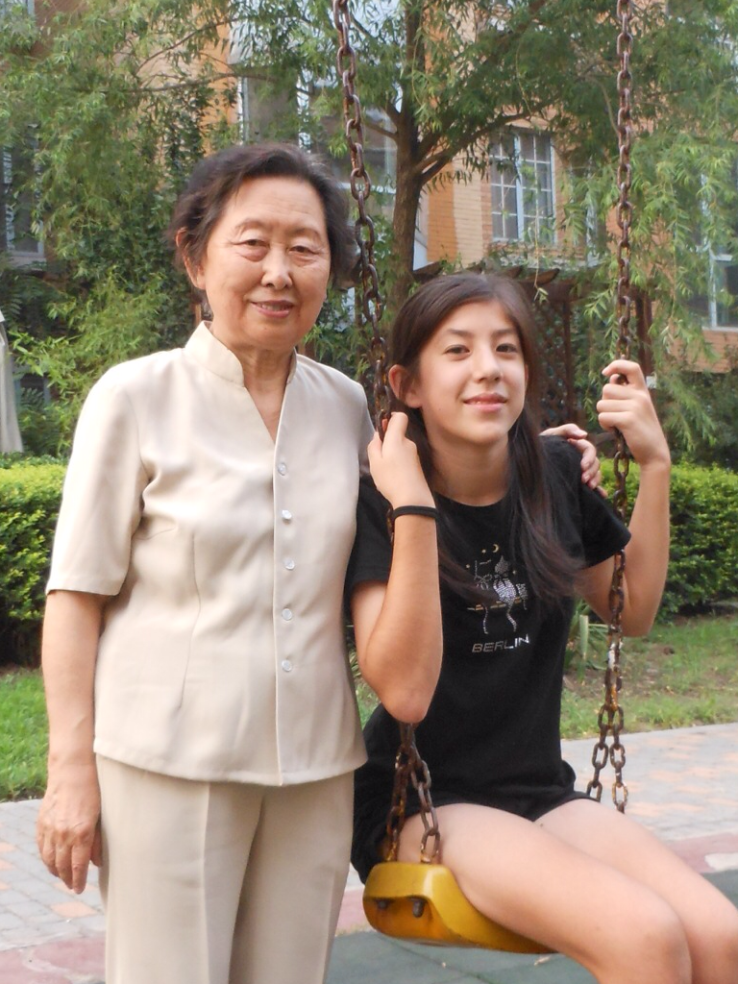

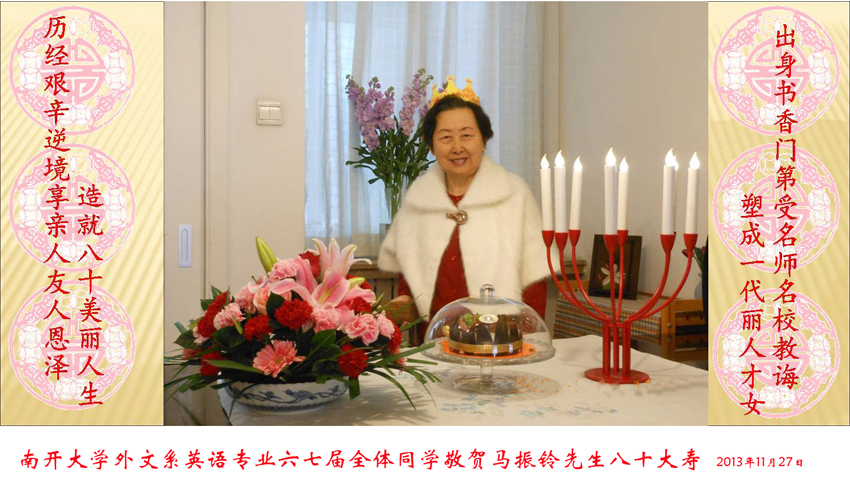

崔永禄校友回忆说:一年级给我们讲课最多的是马振铃老师。她仪容秀整,很有大学教师的风度,讲课认真,吐字清晰准确,,一开始就给同学留下了很好的印象。经济困难时期,主楼里没有暖气,就到宿舍里给同学们上课,在床头挂一块小黑板,她讲课依旧认真,从不缺课。马老师非常耐心,总是微笑着一遍又一遍地解答我们或许是非常无知的问题。(摘自《师忆》)
马老师来信:
东山同学,谢谢你这么快就把我的照片放到网上了。未及时回音对不起。今天下午两点去参加学校及许多单位联合举办的"李霁野先生诞辰110周年纪念大会",会上校长龚克首先发言,还有许多重要人物发言,包括呂聰敏。后半部会议为座谈会,将于很晚结束,我事先不了解,没给老田安排晚饭,不得不提前退席。你会很快从网上看到消息的。再次谢谢!多保重!
振铃 April 3, 2014
 马振铃老师的来信(2009年) 马振铃老师的来信(2009年)
|
English Poet Laureate John Dryden (1631-1700) |
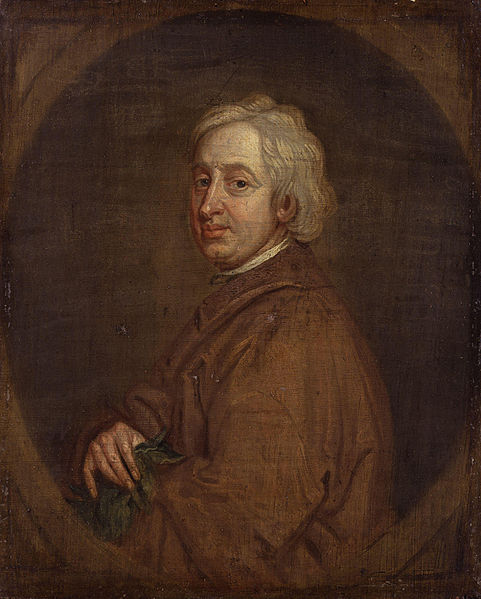
Portrait of John Dryden by Godfrey Kneller, 1698..
(This work of art is in the public domain.)
John Dryden (1631 – 1700) was an influential English poet, literary critic, translator, and playwright who dominated the literary life of Restoration England to such a point that the period came to be known in literary circles as the Age of Dryden. What Dryden achieved in his poetry was not the emotional excitement we find in the Romantic poets of the early nineteenth century, nor the intellectual complexities of the metaphysical poets. His subject-matter was often factual, and he aimed at expressing his thoughts in the most precise and concentrated way possible. Although he uses formal poetic structures such as heroic stanzas and heroic couplets, he tried to achieve the rhythms of speech. However, he knew that different subjects need different kinds of verse, and in his preface to Religio Laici he wrote: “...the expressions of a poem designed purely for instruction ought to be plain and natural, yet majestic...The florid, elevated and figurative way is for the passions; for (these) are begotten in the soul by showing the objects out of their true proportion....A man is to be cheated into passion, but to be reasoned into truth.” |
On Milton
by John Dryden
Three poets, in three distant ages born,
Greece, Italy, and England, did adorn.
The first in loftiness of thought surpass'd,
The next in majesty, in both the last:
The force of Nature could no farther go;
To make a third she join'd the former two. |
|
A Song For St. Cecilia's Day, 1687
by John Dryden |
|
Stanza 1
From harmony, from Heav'nly harmony
This universal frame began.
When Nature underneath a heap
Of jarring atoms lay,
And could not heave her head,
The tuneful voice was heard from high,
Arise ye more than dead.
Then cold, and hot, and moist, and dry,
In order to their stations leap,
And music's pow'r obey.
From harmony, from Heav'nly harmony
This universal frame began:
From harmony to harmony
Through all the compass of the notes it ran,
The diapason closing full in man.
Stanza 2
What passion cannot music raise and quell!
When Jubal struck the corded shell,
His list'ning brethren stood around
And wond'ring, on their faces fell
To worship that celestial sound:
Less than a god they thought there could not dwell
Within the hollow of that shell
That spoke so sweetly and so well.
What passion cannot music raise and quell!
Stanza 3
The trumpet's loud clangor
Excites us to arms
With shrill notes of anger
And mortal alarms.
The double double double beat
Of the thund'ring drum
t||Cres, hark the foes come;
Charge, charge, 'tis too late to retreat.
Stanza 4
The soft complaining flute
In dying notes discovers
The woes of hopeless lovers,
Whose dirge is whisper'd by the warbling lute.
Stanza 5
Sharp violins proclaim
Their jealous pangs, and desperation,
Fury, frantic indignation,
Depth of pains and height of passion,
For the fair, disdainful dame.
Stanza 6
But oh! what art can teach
What human voice can reach
The sacred organ's praise?
Notes inspiring holy love,
Notes that wing their Heav'nly ways
To mend the choirs above.
Stanza 7
Orpheus could lead the savage race;
And trees unrooted left their place;
Sequacious of the lyre:
But bright Cecilia rais'd the wonder high'r;
When to her organ, vocal breath was giv'n,
An angel heard, and straight appear'd
Mistaking earth for Heav'n.
GRAND CHORUS
As from the pow'r of sacred lays
The spheres began to move,
And sung the great Creator's praise
To all the bless'd above;
So when the last and dreadful hour
This crumbling pageant shall devour,
The trumpet shall be heard on high,
The dead shall live, the living die,
And music shall untune the sky.
|
|
  |
|





